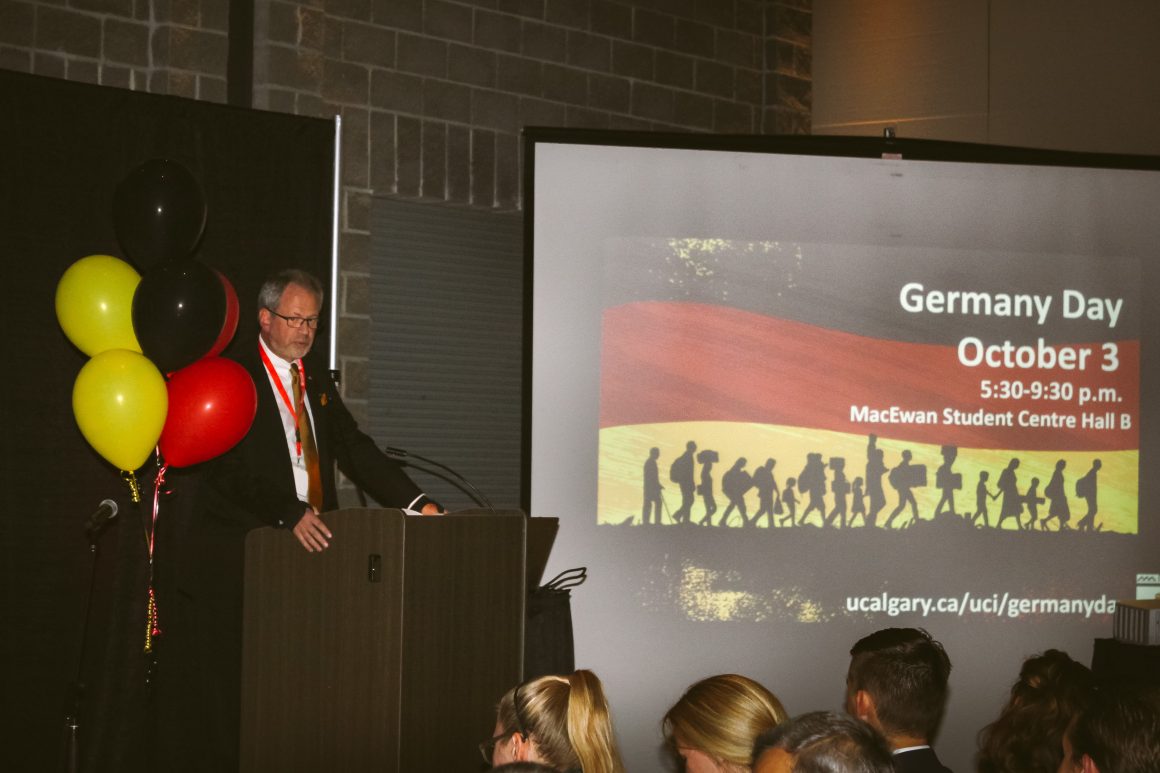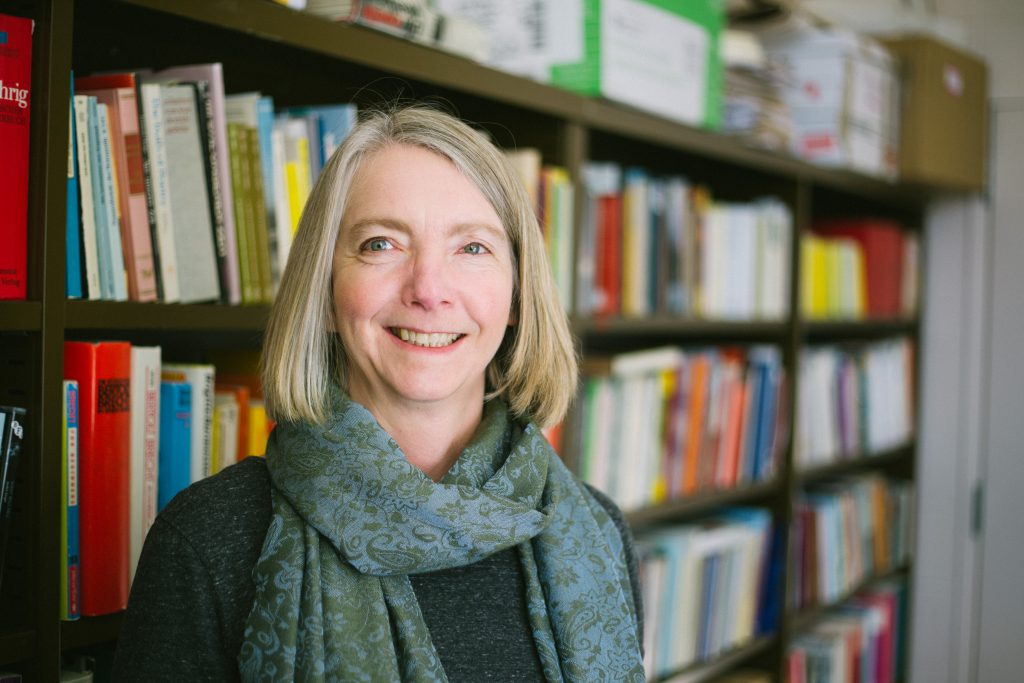
U of C’s annual Germany Day focuses on immigration
By Scott Strasser, October 6 2016 —
The University of Calgary’s annual celebration of German culture took place in MacHall A and B on Oct. 3, drawing around 140 attendees.
Germany Day started three years ago as part of the U of C’s international strategy. The annual event is hosted by the U of C’s School of Languages, Linguistics, Literatures and Cultures.
“Germany is a focus country for the University of Calgary, in part because there are already existing partnerships between [the U of C] and Germany,” said Cheryl Dueck, division chair of German, Russian and Arabic Languages and Muslim Cultures.

Justin Quaintance
The U of C has a strong connection to Germany, with 31 partnerships and 25 active or pending agreements with German institutions. Thirty-nine faculty members at the U of C have at least one degree from a German university, while 22 faculty members originate from Germany.
The event’s date coincided with the formal recognition of the country’s reunification, which is now a national holiday in Germany.
“The date of Oct. 3 is the anniversary of German unification in a legal sense,” Dueck said. “We all know Nov. 9, 1989 was when the border of the Berlin Wall opened. In some ways, [Nov. 9] is the sentimental date of historic memory but Oct. 3 is the legal date.”
While past Germany Days at the U of C celebrated historical landmarks like the 25th anniversary of the fall of the Berlin Wall, this year’s event focused on immigration.
Dueck said immigration was a fitting theme considering Germany’s leading role in the 2015 Syrian refugee crisis.
“Given the migration of almost [one] million asylum seekers into Germany in 2015, it seemed appropriate to address this in an academic context,” she said.
The event included an opening remark from the consul general of the Federal Republic of Germany Hubertus Liebrecht, as well as a keynote lecture from University of Victoria political science professor Oliver Schmidtke.
An expert on political theory surrounding migration, Schmidtke spoke about Germany’s transition towards multiculturalism. He said reunification was the turning point for such a shift.
“It’s always been gradual, but I think German unification was one of the critical turning points,” Schmidtke said. “Moving into the 2000s, there was a consensus among political leaders that immigration is unavoidable and Germany needs to manage it one way or another.”
According to Schmidtke, the country is struggling to adopt new policies to address the sudden influx of so many immigrants.
“Germany took a lead in responding to the plight of refugees coming to Europe and [the country] really hoped they could provide leadership in the European context,” Schmidtke said. “But Germany has failed in a way, [as has] the European Union, to come up with a pan-European solution to the refugee issue.”
The event also included a buffet with authentic German food and a showing of the German film “We Are Young, We Are Strong,” which is about the worst mass mobbing in Germany since the end of World War II.
